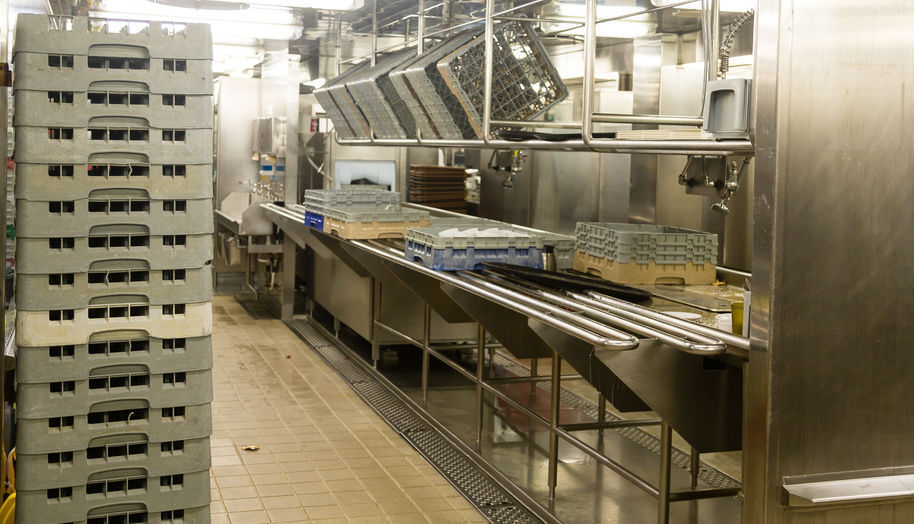A restaurant may have the best food in the world and wonderful ambiance, but if they cannot keep their dishes clean, the crowds will soon disappear. Your commercial dishwasher is critical to keeping your establishment operational.
Commercial dishwashers cost anywhere from roughly $3,000 to over $50,000. This makes them one of the most expensive pieces of equipment in your kitchen. Such a large investment needs to be cared for to prevent early failures and problems. Regularly scheduled maintenance must be part of any restaurant’s operating procedures.
The simplest action one can take is to read the manual! A lot of issues that affect commercial dishwashers are operator-induced. In other words, users create their own problems. Using the wrong chemical can corrode pipes and improper loading can damage internal components. By understanding proper operation, you can save thousands of dollars in repair fees.
To be fair, most of your staff is probably not going to have time to study the manual. In this case, creating an easy-to-read checklist can communicate the most important dos and don’ts for everyone in the kitchen. Such a list should be in plain sight of the control panel or loading doors. Keep this list brief and to the point so that people are more likely to follow every step, rather than skipping things that seem laborious or unrelated to getting dishes clean. Here are some items that you may wish to include on your list.
Checklist items
- Scraping and rinsing the dishes before placing them in the dishwasher prevents food from clogging up the spray jets or the filter.
- Every 20 cycles, clean the filter and refill the water tank. Obviously, if your dishwasher is being used more often, this interval should be shortened. Keeping the water tank clean will prevent bacteria growth. Cleaning the filter will remove food particles that can block the flow of water, which affects how clean dishes get. If left too long, these particles can begin to decay and produce foul smells as well.
- Check your chemical levels before every cycle. Insufficient detergent, rinse aid and sanitizer will mean that you would simply be rinsing your dishes rather than sterilizing them. Customers will also notice streaks and marks if these fluids are not maintained at the proper levels. When topping these chemicals off, make sure you’re using the correct types. The wrong chemicals can irreparably damage your dishwasher.
- Clean and dry your dishwasher daily. After the final cycle, clean your dishwasher and allow it to air dry. Not letting it dry can lead to, you guessed it, bacteria growth.
- Professional maintenance on a regular basis is the best way of catching problems that either you cannot handle or would not normally notice. An annual checkup is required for the rubber seals, solenoid valve filters and chemical dispenser. In addition, regular de-liming of internal parts can stave off expensive malfunctions.
Bieg Plumbing has served the St. Louis area for 60 years, and we’re ready to help with whatever plumbing problems you might be facing. We have the experience and know-how to diagnose and repair any plumbing malfunction you may be experiencing. A family company in its second generation, Bieg also has the compassion to understand your predicament and provide fast service to get your restaurant functioning normally as fast as possible.
Contact our experts today for an appointment.


